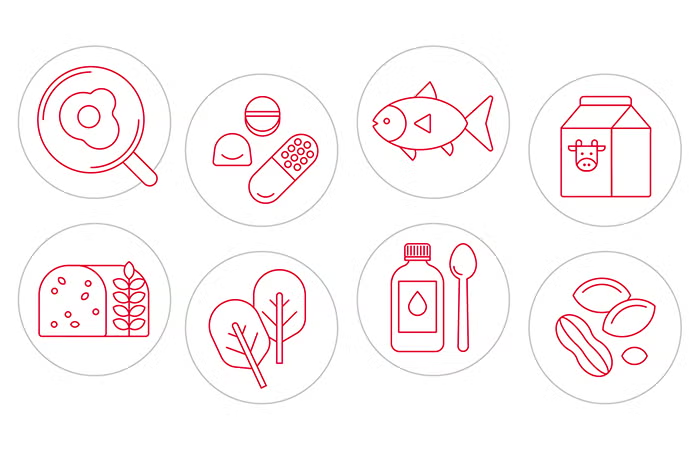
No matter your age, you need vitamins and minerals to survive and thrive. It’s just a fact. By eating a wide variety of foods from different food groups, you can ensure you consume the micronutrients you need to function. But as you get older, your nutritional needs may change — and the food you eat may not cut it. The good news: Vitamin and mineral supplements can help fill in the gaps. So, what vitamins should people over 50 take? Read on to find out which vitamin supplements you may want to add to your daily routine in order to feel your best.
Related Reading: LOW IMPACT EXERCISES FOR SENIORS
How Vitamins Can Contribute to a Healthy Lifestyle as We Age
By age 71, more than 40 percent of Americans supplement their diet with a multivitamin (MVM). While, admittedly, vitamins are not a cure-all solution — even the most comprehensive MVM can’t erase a lifetime of unhealthy habits — they can be a key factor in a healthy lifestyle that incorporates whole foods, regular exercise, and mental health practices.
People turn to vitamin supplements for three main reasons:
● To increase nutrient intake
Vitamins can help you reduce inadequacies in your diet and, effectively, reduce the risk of disease. In other words, vitamins can help fill in certain nutrient gaps when you don’t meet the recommended daily amounts — called recommended dietary allowances (RDAs) — from food alone.
● To improve overall health
Studies suggest vitamins can help improve overall wellbeing, though researchers caution that results may trend this direction because people who already lead healthy lifestyles are more likely to take dietary supplements. In general, always refer to the product label of any supplement you intend to take to check for any warnings associated with the product before you take it.
● To prevent chronic disease
If unaddressed for too long, certain nutritional deficiencies may lead to chronic health problems such as osteoporosis, anemia, and rickets.


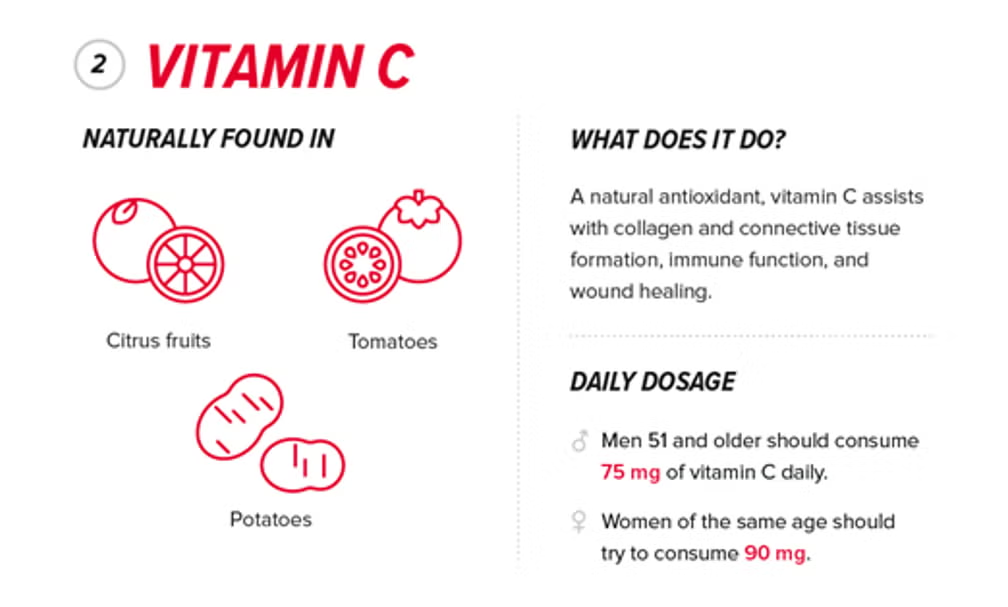
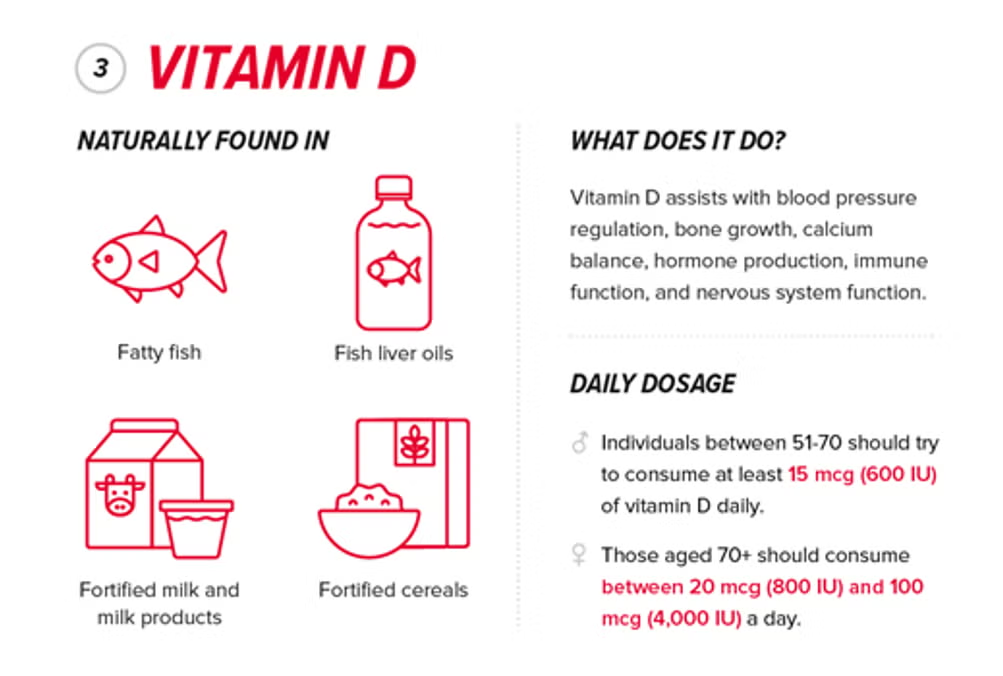
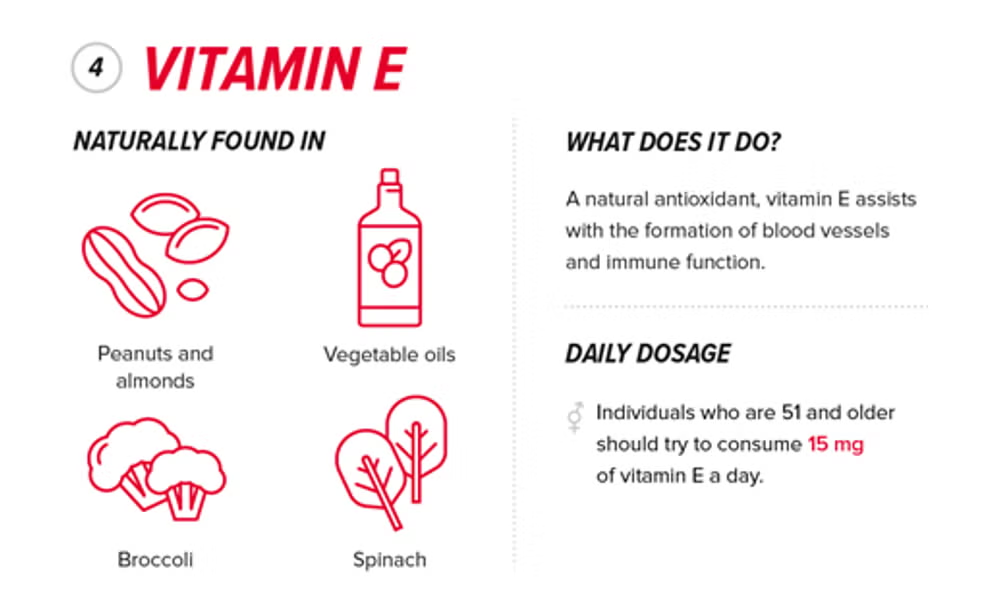



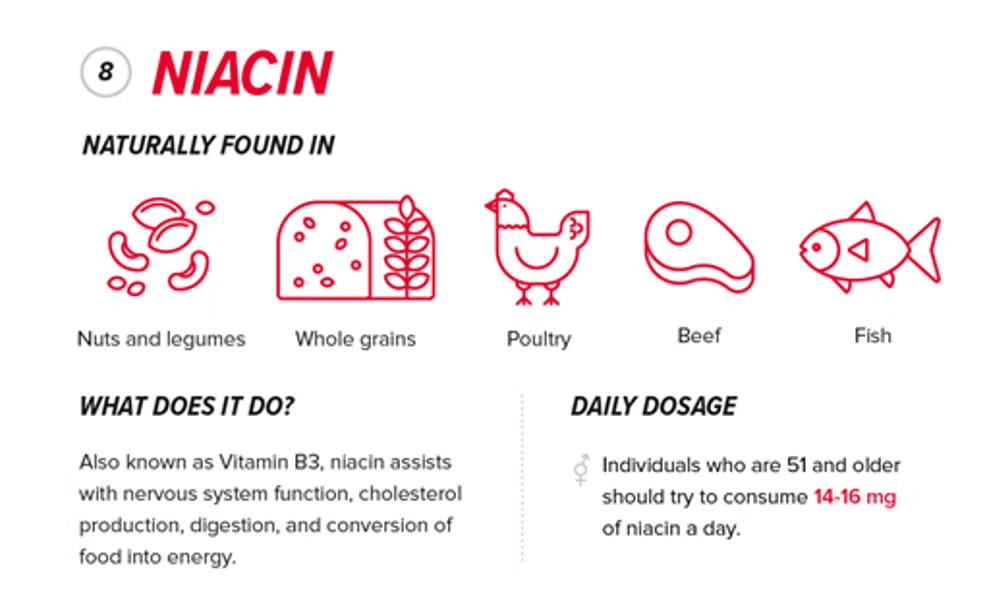
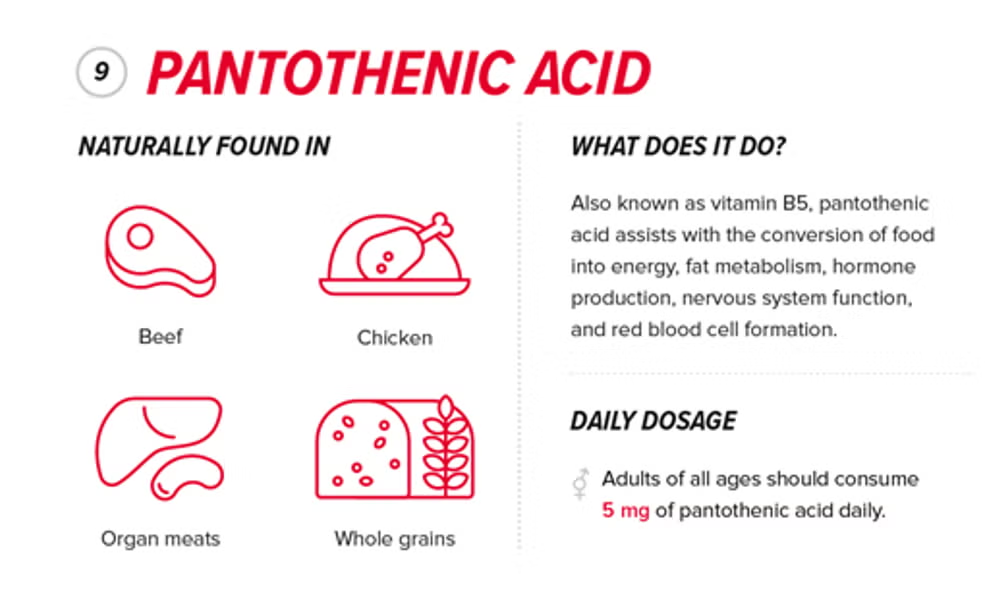
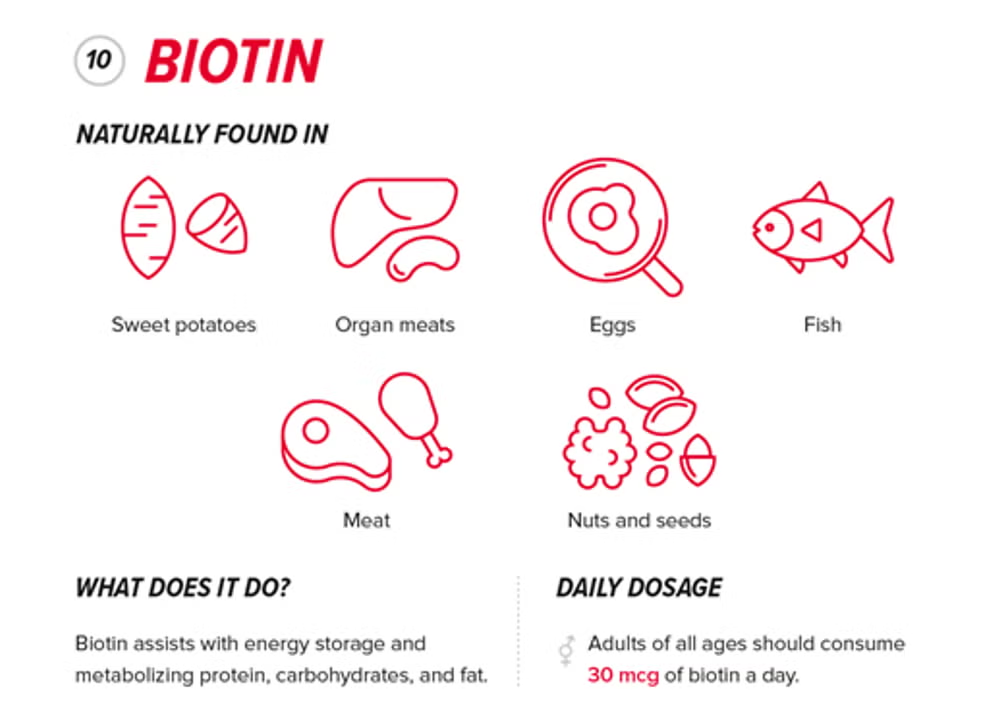
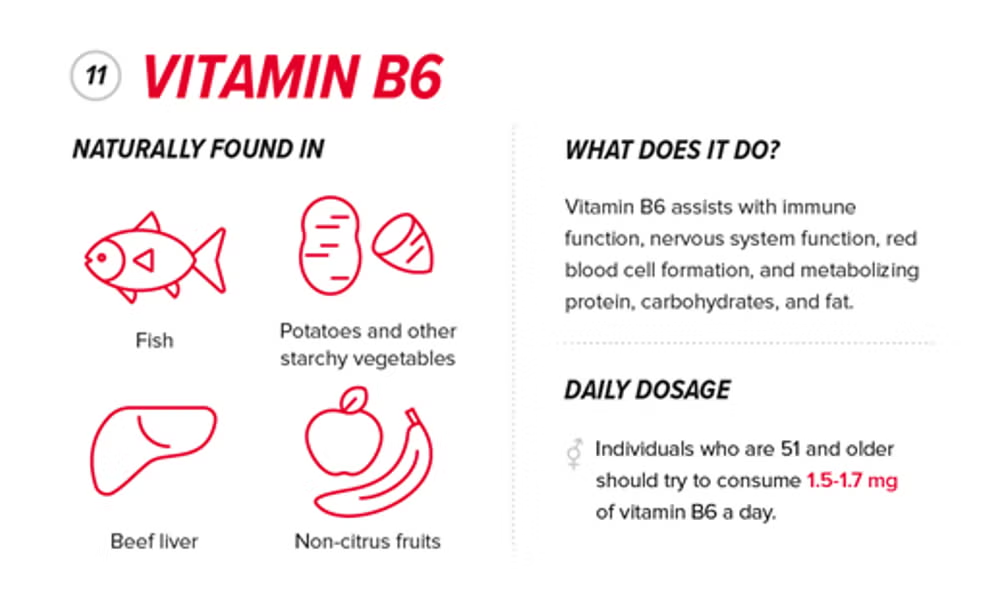
As you move through life, a friend or family member may mention they’re doubling down on calcium to prevent bone fracture or stocking up on B12 supplements to boost their energy. And it’s true; if you’re over 50, your doctor may advise you to bump up the amount of calcium supplements and vitamins D and B12 you consume each day. Why these micronutrients specifically? As we age, we’re more susceptible to bone loss, and calcium and vitamin D work together to maintain strong, healthy bones. Additionally, adults over 50 may need more B12 which helps keep nerves and blood cells healthy, because it can be tougher to absorb as we get older.
THE DIFFERENCE BETWEEN THE MOST COMMON MVM OPTIONS
Depending on your needs and preferences, you may opt for a supplement that contains just one or two vitamins or minerals (such as calcium plus vitamin D) or an MVM. Typically, MVMs include the 13 essential vitamins — A, C, D, E, K, and the eight B vitamins (thiamine, riboflavin, niacin, pantothenic acid, B6, biotin, B12, and folate) — as well as important minerals including calcium, phosphorus, potassium, sodium, chloride, magnesium, iron, zinc, iodine, sulfur, cobalt, copper, fluoride, manganese, and selenium.
The National Institutes of Health (NIH) groups MVMs into the following three categories:
● Broad-spectrum supplements
This option contains all or most of the essential vitamins and minerals in each dose.
● High-potency supplements
This option exceeds the recommended daily intake of some vitamins and minerals.
● Specialized (condition-specific) supplements
This option includes supplements tailored to a specific outcome, such as weight maintenance, improved immune function, or boosted energy.
There are also a variety of different ways you can take your vitamins, including:
● Tablets
These widely available vitamins are sold in solid pill form and typically have a longer shelf life than other options.
● Capsules
Because capsules contain liquid within a shell, you may not detect an unpleasant odor or taste the same way you would with a tablet.
● Gummies and chews
Rather than having to swallow a pill, gummies and chews offer you a more palatable option. This method may be best for people who have trouble swallowing pills. A word of caution: While gummies and chews may taste great (and mask the unpleasant taste of some vitamins), they typically contain more sugar than vitamins in pill form and may have a shorter shelf life than other options. (As previously noted, always refer to the product label of any supplement you intend to take to check for any warnings associated with the product before you take it.)
● Powders
Some meal replacement or protein powder supplements complement macronutrients with micronutrients, including vitamins and minerals. This option may suit you if you want to take all your supplements in one fell swoop. Keep in mind that you’ll need to mix the powder into a liquid and that a powder may not have all the vitamins — and in the amounts — you’re looking for.
● Liquids
Liquid supplements can be the easiest to take because they don’t require chewing or swallowing solids. They may also have one of the shortest shelf life.

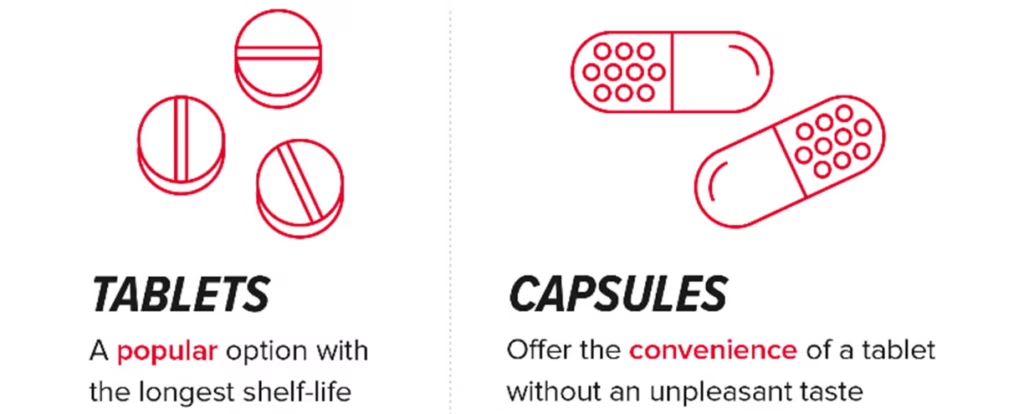
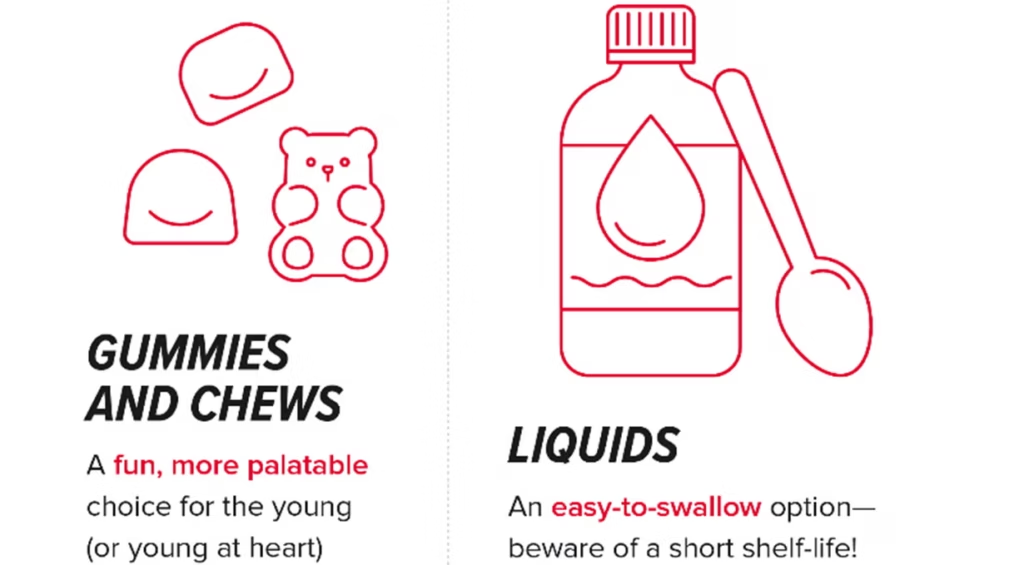
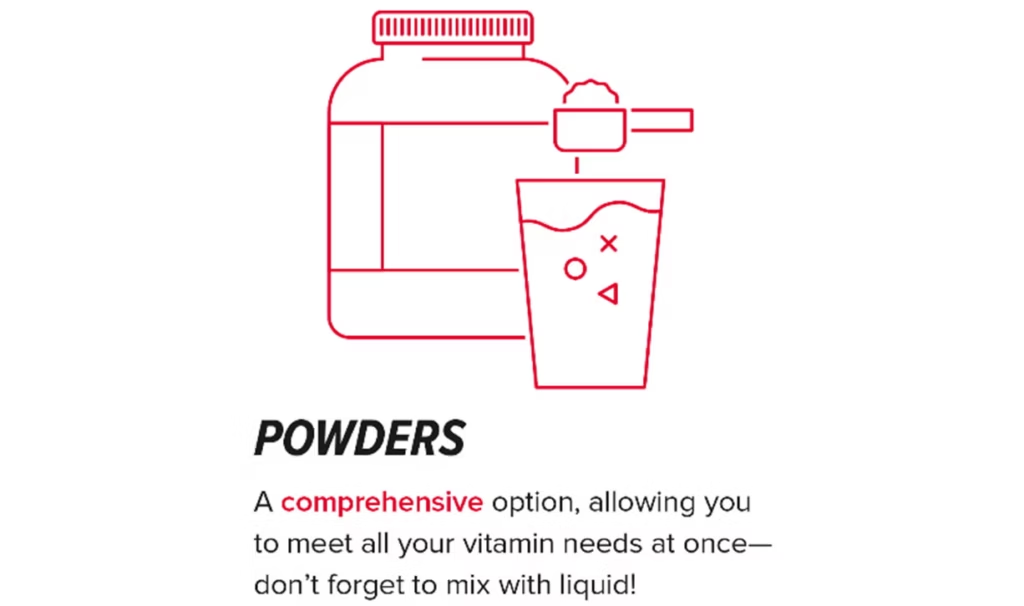
Some research suggests the delivery method of a vitamin supplement may influence its bioavailability, meaning more or less of the vitamins can be absorbed and used by your body. But just as the nutrients in food can be more or less bioavailable depending on certain conditions — when you eat it, what you eat it with, how the food was grown and stored, and more — bioavailability of vitamin supplements can extend beyond the form you take them in. And when it comes to the shelf life of your supplements, it’s probably best to buy just a month or two at a time as research suggests vitamin supplements of varying delivery methods can all degrade within a year. For those reasons, we suggest choosing the delivery method that best fits your lifestyle.
HOW OLDER ADULTS CAN FIND THE RIGHT VITAMINS FOR THEIR NEEDS
Now that we’ve covered the basics: How do you know which vitamin supplements to choose and how much of them you should take each day? The answer requires more than just searching “What vitamins should a man over 50 take?” or “What vitamins should a woman over 60 take?” Ultimately, selecting a vitamin regimen comes down to each individual person and their wants and needs.
The first step in your vitamin search: Schedule an appointment with your primary care physician. Your doctor can order bloodwork to help identify any deficiencies and decide the best supplements for you. They can also suggest certain supplements based on lifestyle factors, such as your activity level, and any dietary restrictions you may have. A registered dietitian can also help you understand how to increase your nutrient intake with specific foods or cooking methods.
Once you have guidance from your doctor and/or a registered dietitian, take some time to determine what matters most to you when it comes to supplements. Become a label sleuth and narrow down your options by delivery type and dietary preferences. For instance, you may opt for a vegan supplement if you stick to a plant-based diet or an organic supplement if you purchase mostly organic food. You may also want to look for the USP Seal which indicates that a dietary supplement:
● Contains the ingredients listed on the label in the amounts they’re listed
● Will break down properly and release into the body within a specified time
● Has been made according to FDA and Good Manufacturing Practices
When making your selection(s), you’ll also want to factor in dosage and timing. Some options may require you to take three capsules at three different times during the day, while other options are required just once a day. It’s best to talk to your primary healthcare provider, such as your primary care physician or a virtual doctor through GNC Health, and/or pharmacist about when you should take your vitamins. They can help tailor your routine around your lifestyle, as well as any medications you take as some supplements can interact with certain medications or impact absorption rate.




CONCLUSION
There’s no question about it; we need vitamins and minerals to lead long, healthy lives. While the majority of your nutrition should come from the food you enjoy each day, supplementing with an MVM made for people over 50 can be an efficient and easy way to check off all your nutrient boxes. In your search to find the best vitamin, take the time to talk to a healthcare professional, read labels, and try out different options.









